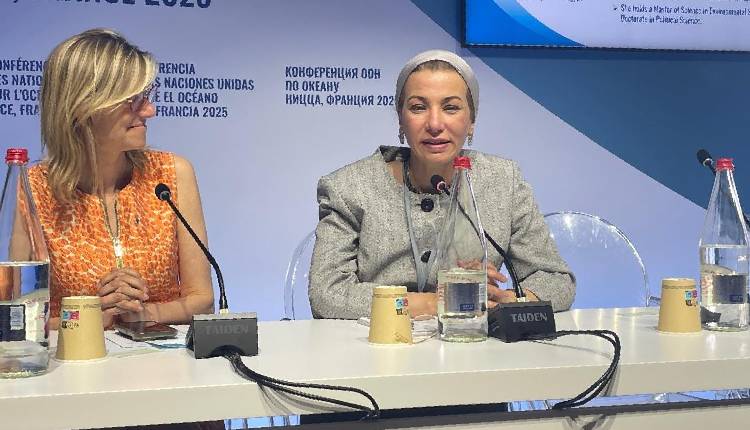Egypt’s Environment Minister Yasmine Fouad participated in a high-level session titled “Scaling Up Solutions for a Plastic-Free Mediterranean”, held on the sidelines of the third United Nations Ocean Conference (UNOC3) in Nice, France, from 9 to 13 June.
The session, organised by the Stimson Centre, IFREMER, ADEME, and the European Commission’s Blue Mission Med, aimed to promote solutions for monitoring and tackling plastic pollution, encouraging international cooperation and innovation for a cleaner and healthier Mediterranean Sea.
The event spotlighted Circe.med, the Mediterranean Circular Economy Network, serves as the Mediterranean’s reference platform for innovative circular economy solutions. Its current focus is on plastic pollution through the dedicated PlasticMed Lab initiative.
Fouad shared Egypt’s experiences in addressing environmental challenges, especially as a country highly vulnerable to climate change impacts, with one of the world’s most affected deltas and coastal areas along the Mediterranean.
She highlighted Egypt’s nature-based solutions, implemented in coastal governorates such as Alexandria, using local materials and involving local communities to counter shoreline impacts—offering a scalable model for other nations.
She stressed the importance of low-cost, innovative technologies and North-South Mediterranean collaboration in addressing plastic pollution.
Fouad also noted that Egypt’s anti-pollution measures account for economic and social dimensions, including population growth and poverty levels.
She cited studies on the impact of single-use plastic bags on biodiversity in the Mediterranean and Red Seas and campaigns in Hurghada and Sharm El Sheikh to reduce their usage.
Fouad added that Egypt recently adopted extended producer responsibility (EPR) policies, with a cabinet decision issued two months ago to ensure implementation in the near future.
Attribution: Amwal Al Ghad English
Subediting: M. S. Salama


